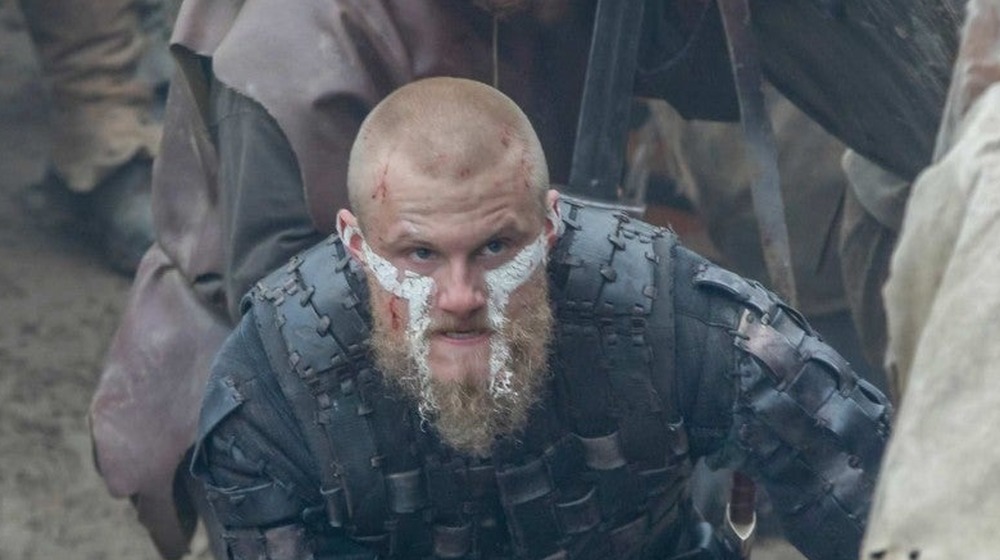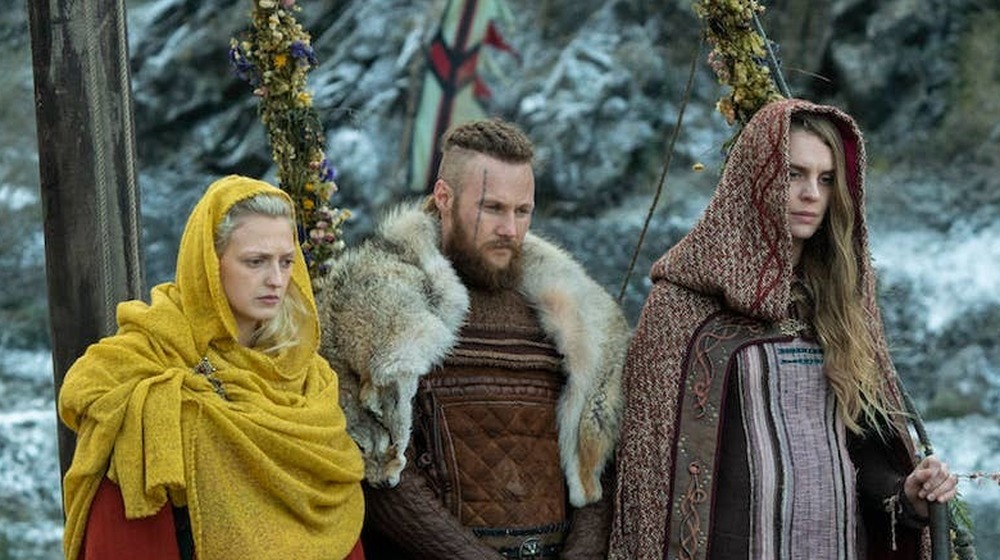How Old The Characters In Vikings Actually Were
Every creator of a work of fiction based on a true story has to decide where his or her loyalties lie: to the truth, or to the story.
It's a dilemma Vikings showrunner Michael Hirst has faced several times in his career. Before creating that series and its upcoming spinoff, Vikings: Valhalla, he wrote other historical dramas, including the films Elizabeth and Elizabeth: The Golden Age, and the Showtime television series The Tudors. In each of these cases, Hirst focused on the story, rearranging details or characters to suit the drama he was weaving. The complex web of external and internal conflicts faced by Ragnar Lothbrok (Travis Fimmel), his family, and his people on Vikings is no exception. Though the series is already a multi-generational tale of war, betrayal, and exploration, one fan on Reddit wanted to make sure everyone knew that there ought to be even more generations involved.
"Has anyone here ever asked themselves how old the characters in Vikings actually are as of Season 6?" wrote u/Niomedes.
Vikings compresses the events of 100 years into 30
"The first season takes place some when in 793," the post continued, "as it features the raid on Lindisfarne of that same year. During this year, Bjorn is 12 Years old. Season 5 features another event that can be dated just as easily, which is the first voyage of Floki to Iceland. This Voyage is dated to 868, about 75 years after the events in the first season." Thus, he argued, continuing to use the example of Ragnar's oldest son, were the show attempting to stay true to history, Bjorn (Alexander Ludwig) would be more than 87 years old by the time of the final season. They would probably have to downgrade him from "Ironside" by that point. Same goes for his contemporaries — from his brothers on down to any character who appeared both in the early and the latter seasons.
Commenters added that there are plenty of other instances to point to. The two sieges of Paris, according to one example cited, actually took place 40 years apart, not one year as depicted on the show. The second of these even occurred after the voyage to Iceland, though in the series it happens before Floki's (Gustaf Skarsgård) departure.
The characters seem to age at different rates
The compression of nearly a century of history into a period roughly a third of that length isn't the only way the series plays with time. The years depicted in Vikings seemed to weigh much heavier on some characters than they do on others. "I like how Ragnar grew from a young farmer into an old fart while Lagertha was forever 28 or something," wrote u/OnoMalgou in a comment on the original post.
One reply jokingly chalked it up to the stresses of being king, but u/maschinentraum notes that this is true broadly speaking across the genders. "Yeah some of the male characters 'age' over the seasons but the woman don't. Judith and Torvi (to some extend) are other examples."
The original poster also wanted to make it clear that this bending of history to fit the narrative isn't necessarily a bad thing. "I personally think that it makes for a far better narrative to have the entire Viking age to be depicted as taking place in the lifetime of a single character as that helps with narrative cohesion etc," u/Niomedes continued in the post. "But I just felt like this would be one of those nice to know things, simply pointing out that contrary to what the wiki says, the entirety of the viking age did not actually transpire in less than 30 years."
Hirst isn't writing the truth; he's writing the story, and so it makes sense that's what he prioritizes. Most fans of the show would likely agree he made the right call.


